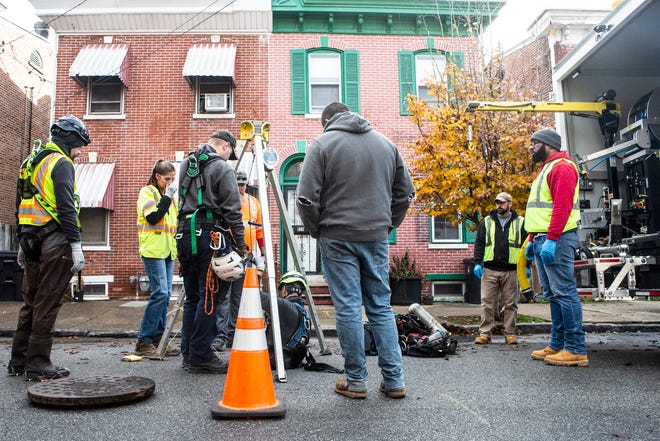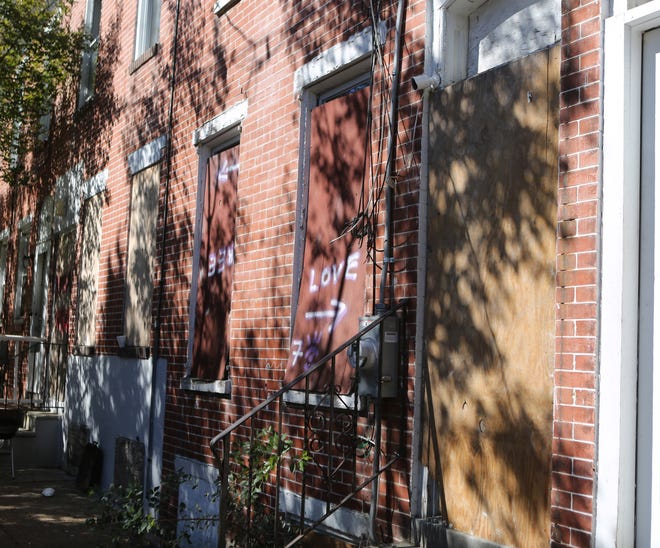Wilmington residents would be spared from property tax increases this year, but water and sewer rates would climb in Mayor Mike Purzycki’s proposed 2024 budget.
Purzycki presented his $183.1 million budget proposal to the City Council Thursday, highlighting some of the city’s achievements like new housing and restaurants and continued investments in underserved communities, while foreshadowing some of the difficult decisions to come.
Unlike last year’s budget which carried a 6% tax hike, this budget avoids property tax increases.
LAST YEAR:Wilmington council approves 2023 budget, reducing property tax increase to 6%
But the mayor warned that “the bills will come due.”
Aging infrastructure requires 5.7% increase
The costs associated with the city’s aging water and sewer infrastructure, however, necessitate regular increases in the city water fund, Purzycki said.
WATCHDOG REPORTING:Why a family’s pleas about a bad sewer leak in their house was ignored for a year
Purzycki’s proposed $84.2 million water fund calls for a 5.7% increase in the water and sewer rate and a 6% increase in the stormwater fee.

A typical residential customer in Wilmington using 4,000 gallons of water per month will see an increase of $3.70 on their monthly bills.
New and increased fees help fill gap
City officials expect a budget deficit by 2026, so to prepare, Purzycki is proposing new and increased revenue sources.
Three proposals before council are a $1 ticket tax on events, increasing the hotel tax to 3%, and an overall increase in fees.

“The effect of these revenue increases will be almost $4 million annually and get us closer to long-term financial viability,” the mayor said.
Vacant property fees may also increase.
HOUSING:With 1,400 vacant properties, Wilmington wants to tackle blight. Here’s how they’re trying
“Owners of vacant housing must be held to account for dragging down our neighborhoods by being charged more appropriately for the damage they inflict,” Purzycki said. “Our fees must be updated to meet our budgetary demands of delivering regulatory and enforcement services.”
Inclusive contracting practices examined
Wilmington for the first time is examining its contracting practices for inclusiveness and fairness.
Last year, the city began a disparity study with the goal of ensuring the city is “providing minority and women-owned businesses the opportunity to bid for city-issued proposals for goods and services,” Purzycki said.
FOR SUBSCRIBERS:Why Riverfront Development Corp. launched petition against Wilmington hookah lounge
The city has provided over $4 million in credit and grants to minority developers and businesses, the mayor added.
Wilmington will begin a citywide compensation study this spring.
An ‘energized’ economy and future plans
Purzycki applauded the city’s “energized” economy, with new apartments, hotels and restaurants painting Wilmington’s landscape.
The city has added 2,400 new apartment units under his administration, Purzycki said.
Building permit revenue has averaged $253 million annually the last three years, he said, and the Chase Fieldhouse has become an “unexpected economic driver” for the city, attracting 1.5 million visitors and participants to Wilmington last year.

Purzycki also celebrated the investments occurring in various neighborhoods, including Riverside with the opening of Imani Village and the East Side’s rehabilitated homes through Habitat for Humanity.
RIVERSIDE DEVELOPMENT:Residents move into first phase of Wilmington mixed-income development
“Nearly 1,000 new apartments currently in production continue to bolster the city’s future vitality,” he said. “And it should be noted that in doing so we have not displaced one single resident anywhere in this city.”
Future projects include demolishing the Rodney Reservoir and turning it into a community park, beginning the next phase of Rodney Square revitalization, and rehabbing city firehouses.
Got a tip? Contact Amanda Fries at afries@delawareonline.com. Follow her on Twitter at @mandy_fries.